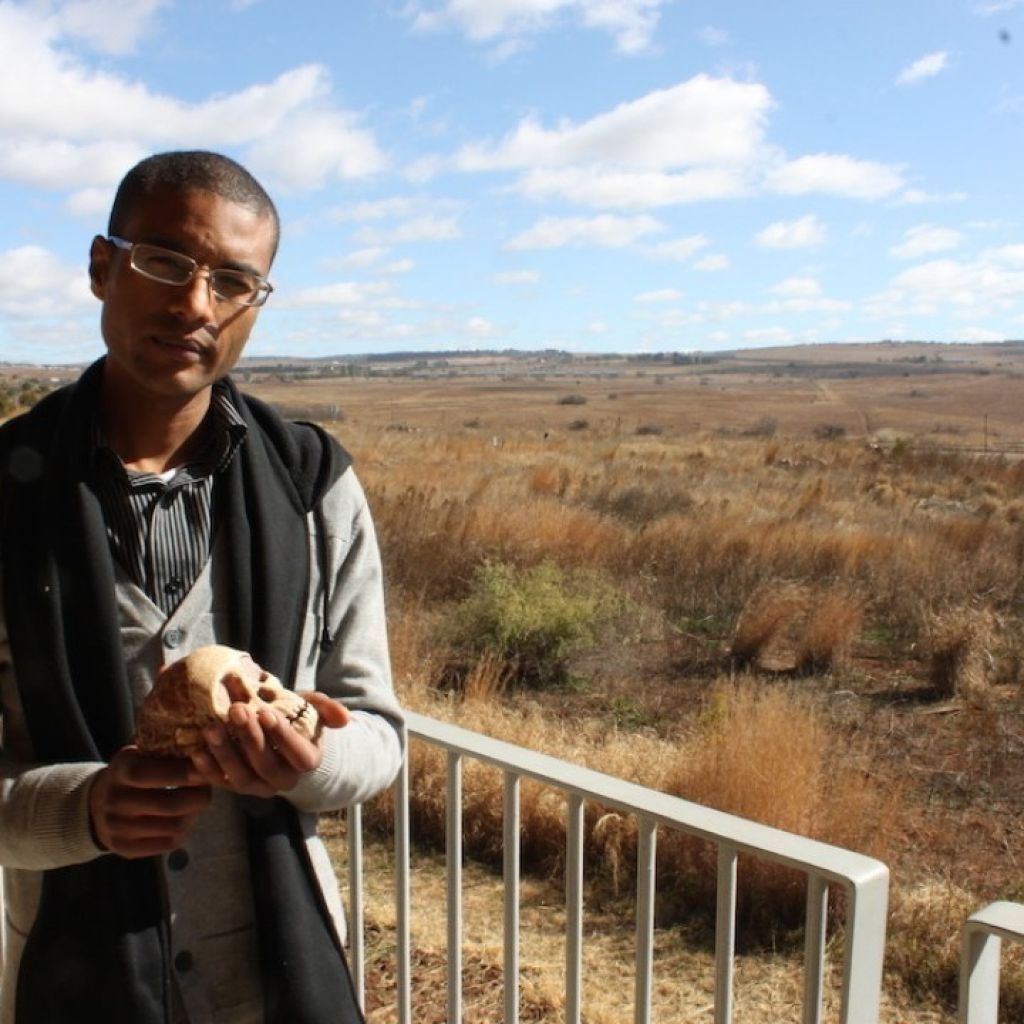Why Homo sapiens fathers deserve Father’s Day
There is no doubt that there are aspects about humans that make us special in the animal kingdom – our fathers are one of these.
The phenomenon of the father playing a role in the upbringing of his offspring is incredibly rare in mammals – in fact, studies show that this only happens in about 5% of mammalian species.
Human fathers are a scientific riddle, says scientist David C Geary. In his book, Family Relationships, he says: “Men’s parenting is highly unusual when we consider that males in at least 95% of other mammalian species, including the two species most closely related to humans, that is, chimpanzees (Pan troglodytes) and bonobos (Pan paniscus), do not participate in parenting.”

Brendon Billings, the Bone Detective at Maropeng, agrees that although we do see males playing a significant role in child rearing in certain animals, it is a rare phenomenon when it comes to mammals.
In their book, Fatherhood: Evolution and Human Paternal Behavior, anthropologists Kermyt Anderson and Peter Gray say that when a man becomes a father, it actually alters his biochemistry, as well as changing him emotionally and socially.
Anderson says, “In the short term, the lack of sleep and exposure to every new germ on the playground worsens men’s health, but in the long term, fathers seem to live longer, healthier lives than non-fathers. Also, while the hormonal and physical changes following childbirth are nowhere near as profound or extensive in men as in women, fatherhood does appear to alter men’s brains and change their hormonal profiles.”
Although the males of our closest living primate relatives, chimps and bonobos, play no role in the upbringing of their offspring, “every human culture is characterised by male involvement with their children”, Anderson says.
So when exactly did our male ancestors begin to play an active role in the upbringing of their children?
Our Bone Detective says, “In order to answer this question, we first have to identify the need for males or fathers in the animal kingdom.”
Billings agrees with scientist Stephen Jay Gould, who believes that “males are around to provide variation, genetically, phenotypically and behaviourally. These variations allow a species to survive the complex diversity that the environment forces upon it and males therefore have a significant contribution to ensure the survival of the species.”
So, as we evolved to become what we are today, males played a role in making sure that our ancestors survived. But when did this role change from being biological to social?
When we think of a father’s role in society, we typically see his primary role as being the protector of his family, but Billings says that it is not that simple.
He explains a theory, developed by scientist David Bell, on the evolution of parental caregiving from the level of reptile to mammal:
In more primitive types of animals, such as reptiles, scientists have observed a behaviour called “stranger rejection”. Animals can detect a stranger by their smell, and areas of the brain are triggered that drive the animal to either run away from or kill the stranger.
But, as animals evolved further, another completely different behaviour developed – the phenomenon of bonding with others, driven by the hormone oxytocin. In humans, when we bond with one another, we experience feelings of attachment and therefore the desire to provide parental care.
Billings believes that “this change in the neurochemistry from mere stranger rejection to include bonding is what [is] responsible for both males and females being responsible caregivers according to human standards”.
He does say, however, that this is just one theory, and there are things that influence the way that animals care for their children – for instance, the fact of live birth (vivaparity), and of course culture.
Billings also explains that “humans are considered to require a lot more nurturing because of the slow development of our very large brains, hence the requirements in terms of parental care is of greater importance”. He says that he believes that “human males therefore have a greater interest and investment in caregiving in order to ensure the survival of their prodigy”.
So, to thank your dad for being such a special mammal, take him to one of the first places where men might have cared for their children – Maropeng.
There are some special events at Maropeng this weekend to celebrate Father’s Day, such as the brandy pairing lunch at the Maropeng Hotel and the Father’s Day lunch at the Tumulus Restaurant.
Many mysteries and questions still surround our evolution, but if you are looking for answers, Maropeng is a good place to start.